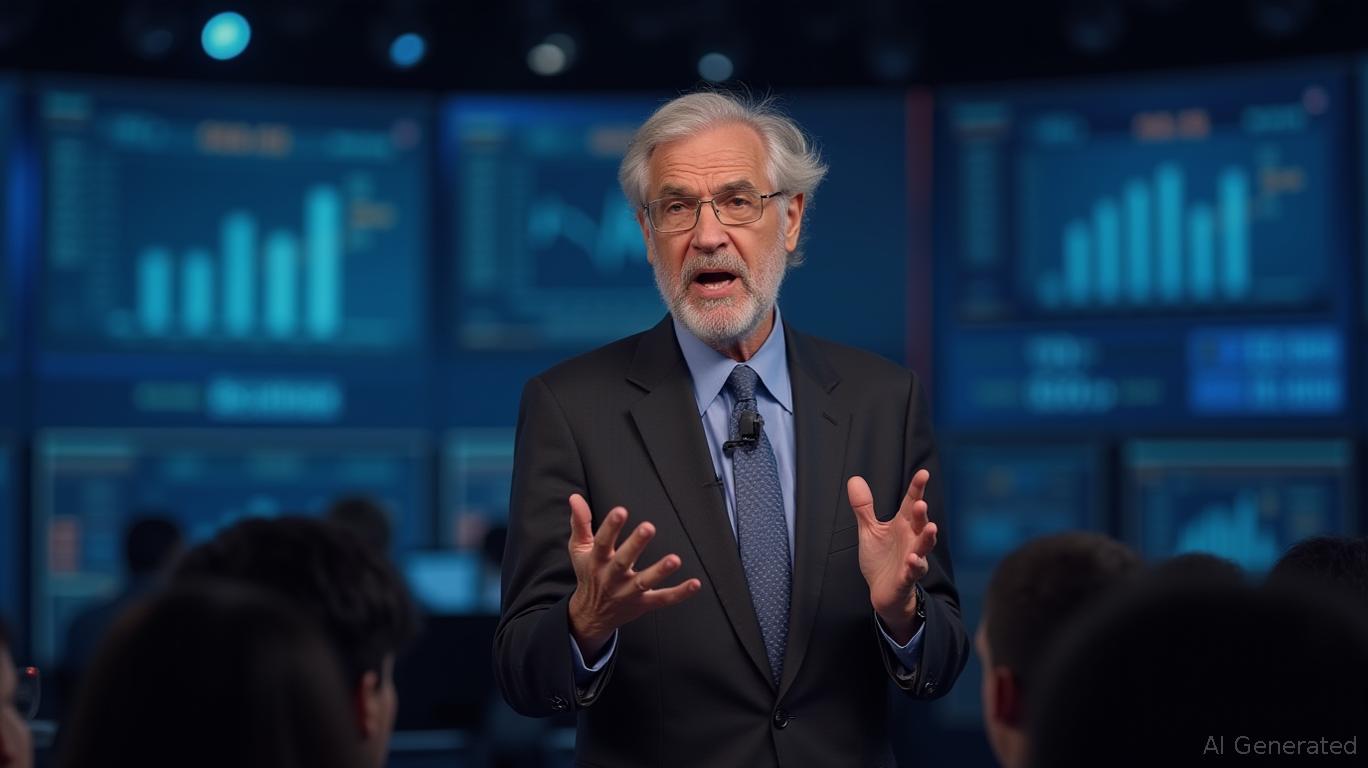Fragile Ceasefire in U.S.-China Trade Dispute as Both Parties Halt Tariff Threats
- U.S. and China suspend tariff threats, delaying 100% import duties amid APEC summit preparations. - China agrees to resume U.S. soybean purchases, addressing farmers' losses from Brazil's market dominance. - Rare earth export restrictions postponed by one year, easing supply chain disruptions but requiring internal approvals. - Broader talks cover port fees, fentanyl cooperation, and Ukraine conflict, with EU separately assessing countermeasures. - Fragile détente highlights geopolitical tensions, with T
U.S. Treasury Secretary Scott Bessent has indicated that tensions in the U.S.-China trade conflict may ease, stating that China is set to make "significant" purchases of American soybeans and will not implement an additional 100% tariff, as reported by
Recent weeks saw heightened friction, with Trump warning of a 100% tariff on Chinese goods beginning November 1 in retaliation for China’s expanded export restrictions on rare earth minerals, as noted by

One of the main challenges in the negotiations was China’s sudden suspension of U.S. soybean imports, which fell to zero in September—the first time this has happened since 2018, according to Seeking Alpha. This allowed Brazil and Argentina to take the lead in supplying soybeans to China, with Brazil alone providing 85% of China’s imports that month, as reported by the Times of India. American farmers, who depend on China for nearly half of their overseas soybean sales, have suffered considerable losses. Bessent, however, expressed confidence that the agreement will restore U.S. soybean exports, assuring that farmers will be "very pleased" with the outcome, according to Fortune.
The discussions also covered a range of economic issues, such as U.S. port charges, cooperation on fentanyl regulation, and China’s involvement in the Ukraine situation. Chinese representatives described the talks as having reached an "initial consensus," but stressed that further internal approvals are needed before the deal can be finalized, according to Yahoo Finance. Trump, who has consistently pushed for a "strong" trade agreement, suggested that more meetings with Xi could take place in the future, possibly in both China and the United States.
At the same time, the European Union is independently considering how to respond to China’s rare earth restrictions, with French President Emmanuel Macron proposing the use of the EU’s anti-coercion tool if diplomatic negotiations do not succeed, as mentioned in the Scanx report. The EU’s dependence on China for 90% of its rare earth magnet imports has increased concerns about supply chain risks.
As the U.S. and China attempt to prolong their trade ceasefire beyond November 10, the results of these discussions are likely to have significant effects on global markets. For now, the suspension of tariffs and export limits provides a temporary relief, though the delicate balance highlights the ongoing challenges of managing economic priorities amid international tensions.
Disclaimer: The content of this article solely reflects the author's opinion and does not represent the platform in any capacity. This article is not intended to serve as a reference for making investment decisions.
You may also like
Dogecoin News Update: Layer Brett's DeFi Advantage Draws Investors While Dogecoin Faces Setback
- REX-Osprey DOGE ETF, the first U.S. spot ETF for Dogecoin (DOGEUSD), launched on September 18, 2025, attracting institutional investors. - Dogecoin faces $0.20–$0.21 resistance after a 16% monthly decline, pushing investors toward Layer Brett (LBRETT) as an alternative. - Layer Brett, an Ethereum-based meme-DeFi hybrid, offers staking rewards, low fees, and 600% annualized returns, drawing crypto enthusiasts. - With $4.4M in funding and 10B tokens, Layer Brett combines utility and community incentives, p

Krugman Cautions That AI-Fueled Expansion May Widen Inequality and Deepen Economic Disparities
- Nobel laureate Paul Krugman warns the U.S. economy faces "abnormal" challenges, including AI-driven inequality, stagnant employment, and deepening polarization. - He highlights three key issues: sectoral divides from AI growth, an "employment freeze" with limited job access, and K-shaped growth favoring high-income groups. - Krugman criticizes delayed data releases and urges policy reforms to address systemic imbalances, as global trade tensions and Trump-era tariffs complicate economic stability. - His

BNB News Update: As BNB Levels Out and AVAX Declines, Crypto Investors Turn Their Attention to MoonBull
- BNB stabilizes above $1,100 amid Kyrgyzstan's BNB-backed stablecoin/CBDC partnership with Binance's CZ, while MoonBull ($MOBU) emerges as a high-ROI altcoin focus. - MoonBull's presale model offers 9,256% projected ROI through 23 price stages, 95% APY staking, and deflationary mechanics (liquidity, reflections, burns) to drive scarcity. - T. Rowe Price's $1.51T asset manager's crypto ETF filing signals institutional adoption, contrasting with AVAX's 14.85% monthly decline and bearish indicators. - $MOBU'

Bitcoin News Update: Bitcoin's Reputation as 'Digital Gold' Sparks Shift from Ethereum ETFs
- Ethereum ETFs saw $18.77M outflows in late October as investors shifted to Bitcoin, deepening crypto market divergence. - Bitcoin ETFs gained $73.63M in inflows via BlackRock's IBIT, maintaining $146.27B in net assets vs. Ethereum's $25.81B. - Bitcoin's price stabilized at $108,630 while Ethereum fell 0.89% to $3,832, reflecting institutional preference for Bitcoin's stability. - Fidelity's FBTC and Bitwise's BITB attracted $75.33M in October inflows, reinforcing Bitcoin's ETF leadership over Ethereum.
